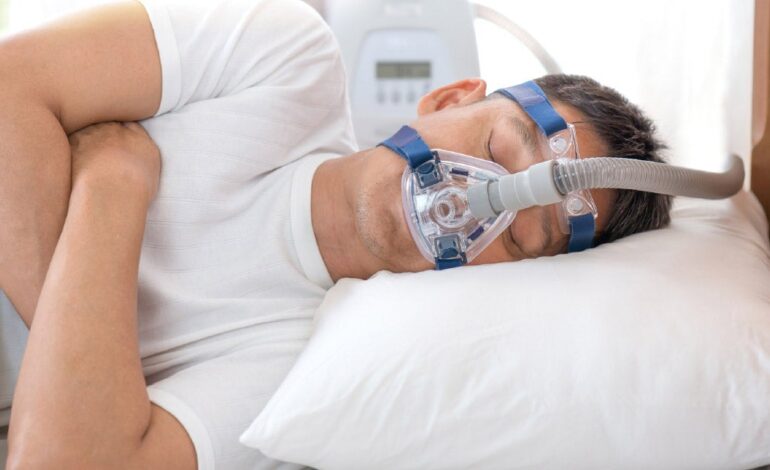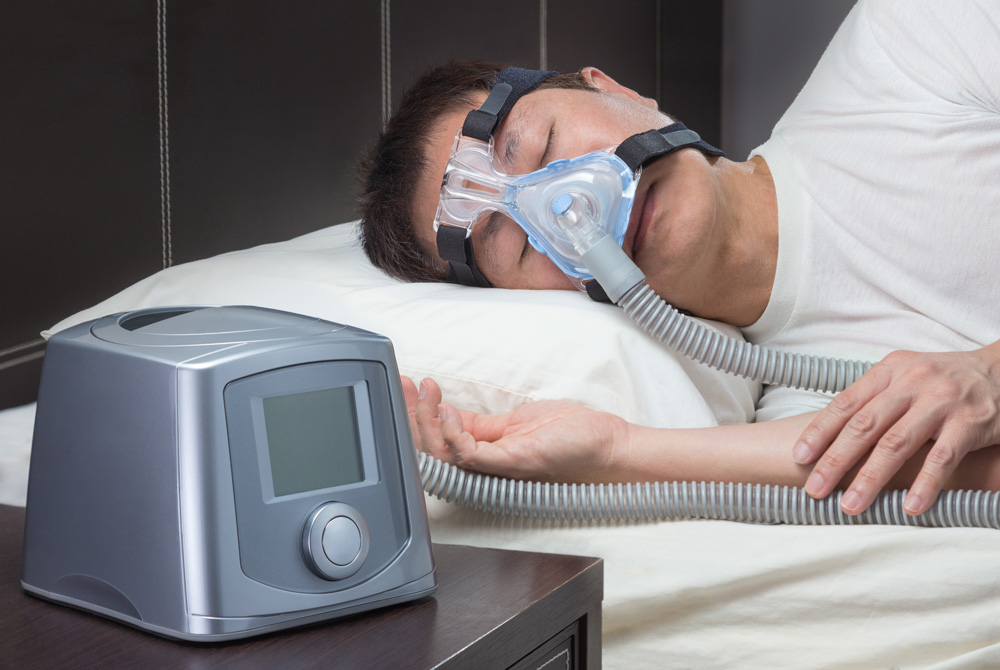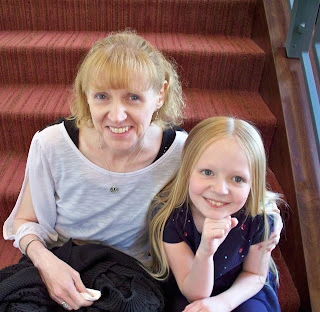Breathe Easy: The Truth About Sleep Apnea Testing—What It Reveals and Why It Matters
Do you snore loudly? Wake up gasping for air? Feel exhausted even after a full night’s sleep? You’re not alone—and it might be more serious than you think. These could

Do you snore loudly? Wake up gasping for air? Feel exhausted even after a full night’s sleep? You’re not alone—and it might be more serious than you think.
These could be symptoms of sleep apnea, a common but often undiagnosed sleep disorder that doesn’t just rob you of rest—it could also impact your heart, brain, and relationships.
The good news? Testing for sleep apnea is easier, more accurate, and more accessible than ever. Whether you’ve heard about at-home sleep tests, overnight lab studies, or the dreaded CPAP machine, here’s a full breakdown of what to expect—and why it could change your life.
What Is Sleep Apnea?
Obstructive sleep apnea (OSA) is a condition in which your breathing repeatedly stops and starts during sleep because your airway becomes blocked or collapses. Your brain jolts you awake momentarily—sometimes hundreds of times per night—without you realizing it.
There are also less common types:
- Central sleep apnea (CSA): the brain doesn’t send proper signals to the muscles that control breathing.
- Complex sleep apnea: a mix of both OSA and CSA.
Does Sleep Apnea Affect Certain Races or Ethnicities More?

Yes. Sleep apnea does not affect all populations equally, and racial and ethnic disparities are well-documented in both diagnosis and outcomes:
- Black Americans are more likely to suffer from moderate to severe sleep apnea compared to white Americans, even when controlling for weight and other risk factors. They’re also less likely to be diagnosed or treated.
- Hispanic and Native American populations also show a higher prevalence of sleep-disordered breathing.
- Cultural, genetic, and socioeconomic factors play a role, as well as limited access to sleep specialists or diagnostic testing in underserved communities.
This underscores the importance of awareness and proactive healthcare, especially in communities where sleep disorders may go unrecognized or under-treated.
Who Should Get Tested?
You may need a sleep apnea test if you experience:
- Loud, chronic snoring
- Gasping or choking during sleep (often noticed by a partner)
- Excessive daytime fatigue
- Morning headaches
- Dry mouth upon waking
- Mood changes, depression, or trouble concentrating
- High blood pressure or cardiovascular conditions
High-risk groups include:
- People with obesity or large neck circumference
- Postmenopausal women
- People with type 2 diabetes
- Those with a family history of sleep apnea
If these sound familiar, you don’t need to wait for symptoms to worsen. Early detection can prevent long-term complications.
What Happens During a Sleep Apnea Test?
There are two main types:
1. Polysomnography (In-Lab Sleep Study)
- Conducted overnight at a sleep center
- Monitors brain waves, oxygen levels, heart rate, breathing, limb movement, and snoring
- Gold standard for diagnosing all types of sleep apnea
2. Home Sleep Apnea Test (HSAT)
- Conducted at home with a portable monitor
- Measures breathing patterns, airflow, oxygen saturation, and heart rate
- More convenient and cost-effective, but typically only for suspected obstructive sleep apnea
What Does the Test Reveal?
Sleep apnea tests provide detailed data, including:
- Apnea-Hypopnea Index (AHI): the number of times breathing stops or is reduced per hour
- 5–15: mild
- 15–30: moderate
- 30+: severe
- Oxygen desaturation: drops in blood oxygen levels during the night
- Heart rate variability: potential cardiovascular strain
- Sleep stages: whether you’re reaching deep sleep and REM cycles
A positive result means you stop breathing multiple times during sleep, often without being aware of it.
Read About: What We Breathe Shouldn’t Be a Health Risk — But It Is
What’s the Connection to Heart Disease—and More?
Untreated sleep apnea does more than make you tired. It’s a major risk factor for heart disease, high blood pressure, stroke, and more. In many cases, what starts as nighttime breathing disruption can evolve into chronic lower respiratory diseases that profoundly affect quality of life long term.
Untreated sleep apnea does more than make you tired. It’s a major risk factor for:
- Heart disease
- High blood pressure (particularly drug-resistant hypertension)
- Atrial fibrillation
- Stroke
- Type 2 diabetes
- Cognitive decline and memory issues
- Depression and anxiety
- Liver problems
Studies show that sleep apnea doubles the risk of cardiovascular death. In fact, 40–60% of patients with heart failure also have sleep apnea, according to the American Heart Association.
What Happens If I Test Positive?
First: don’t panic. A diagnosis is the beginning of better sleep, not the end of your freedom.
Common treatments include:
- CPAP therapy: A machine that gently pushes air through a mask to keep your airway open. Yes, it may look bulky—but modern versions are small, quiet, and portable.
- Oral appliances: Custom dental devices that reposition the jaw and tongue. Great for mild to moderate OSA.
- Weight loss: Even a 10% reduction can significantly improve symptoms.
- Surgery: In rare or severe cases, procedures to remove excess tissue or realign the airway may be recommended.
Are There Natural Remedies?
While lifestyle changes won’t cure moderate to severe apnea, they can reduce severity:
- Sleep on your side instead of your back
- Avoid alcohol, sedatives, and smoking
- Lose weight if overweight
- Elevate the head of your bed
- Treat allergies or nasal congestion
These can supplement medical treatment, not replace it.
How Will It Affect My Life—And My Partner?
Sleep apnea doesn’t just affect your health—it can strain your relationship. Snoring, restlessness, and fatigue don’t exactly inspire romance.
Good news:
- Treatment often improves mood, libido, and energy, making you a better partner.
- CPAP machines today are quieter and more discreet than ever.
- Many couples report better sleep for both partners once treatment begins.
Talk to your partner about what’s happening. Chances are, they’ll be relieved to know there’s a solution—and sleep better too.
The wrap up
Sleep apnea testing isn’t just about reducing snoring—it’s about protecting your brain, heart, and future. The test is painless, the results are revealing, and the treatments can transform your life.
If you’re struggling with sleep—or love someone who is—don’t ignore the signs. Get tested, get answers, and get your nights (and days) back.
By Ravoke News Desk for Ravoke.com








